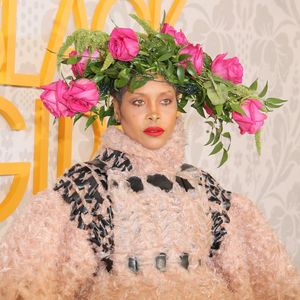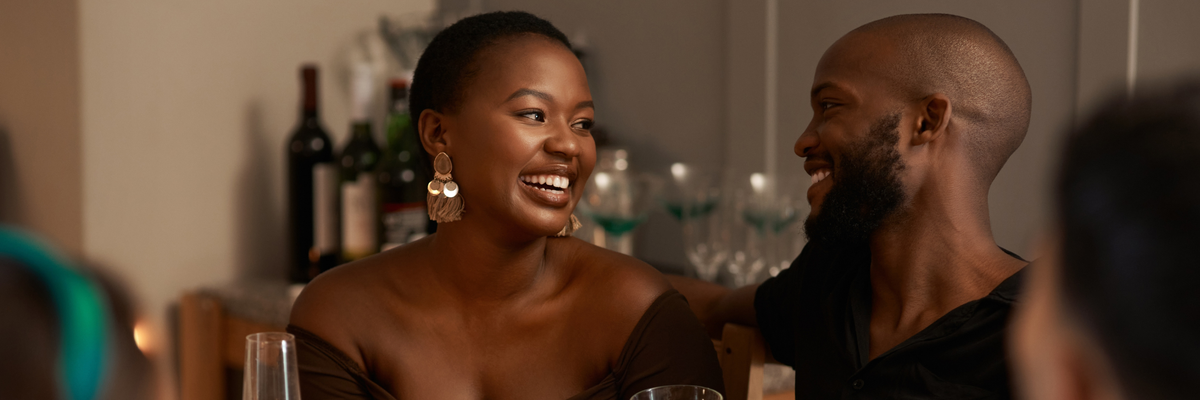
While there are women on the frontlines of both the second wave of COVID-19 and protesting, these times are impacting more than just the medical and social impact fields. Mental health affects people young, old, tall, short, Black, white, or Indigenous. Placing our minds first is easier said than done, but it is imperative to remember that we cannot function physically, emotionally, or mentally without our brains.
No matter your work in the medical field, photography, styling, or modeling, these times are rough for any Black woman and may be enough to knock anyone to their knees, but these women stand tall and firm while being emotionally and mentally aligned with themselves first.
xoNecole caught up with a few women spread throughout various lines of occupations about managing and prioritizing their mental health, how recent events in Black America have impacted their careers, and the state of their mental health as a result.
Alysha P., Cinematographer/Producer and 1/5 of 'Black Girl Podcast'
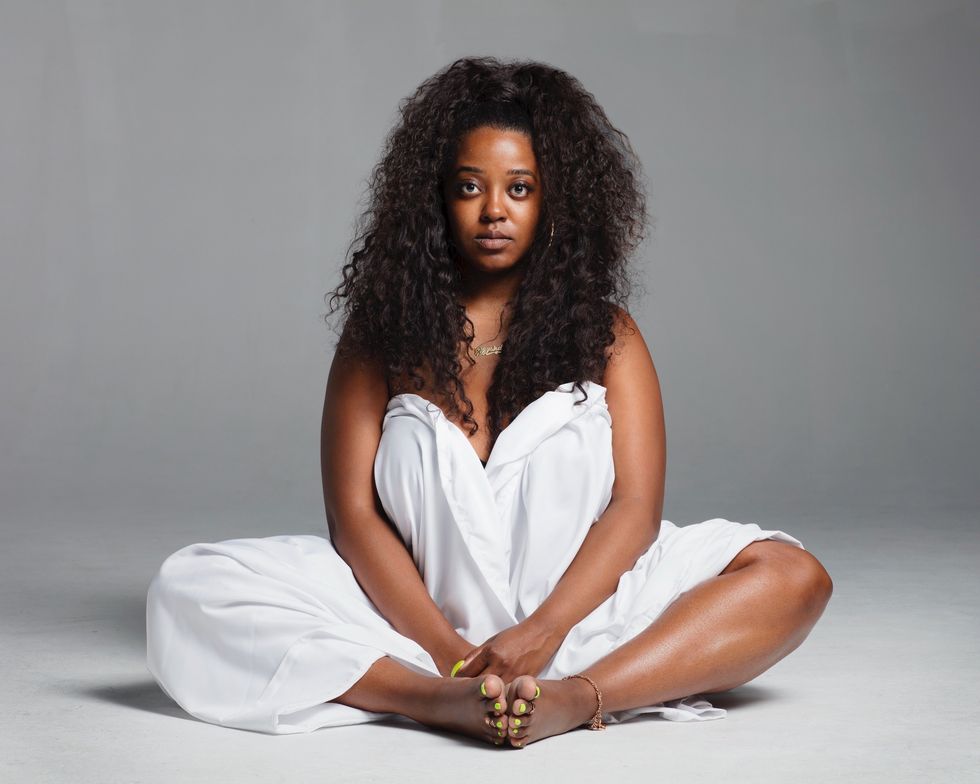
Courtesy of Alysha P.
How has your line of work been impacted by recent events in Black America?
All companies are taking this time to do their due diligence and work from the inside out. I think that's extremely commendable if the intentions are pure. Very real and difficult conversations are being had across all industries. I am personally showing up in this moment by using my voice to advocate for us. My goal is to make sure we are heard, seen, respected and understood on all fronts.
How has your mental health been impacted in relation to how recent events have affected your occupation/studies?
When the pandemic first broke loose, I had extreme anxiety. I had no idea it was anxiety until my therapist called it out in one of my sessions. In that moment, I knew I had to lean into the healing. I had to become still, patient and very compassionate with myself. I had to give myself grace. Once I was able to identify and contain the stress and anxiousness, a beautiful awakening started to bloom. I began to love me. I never imagined that I would find such peace and self-awareness healing through a time of absolute chaos and pain within the Black community. This peace has allowed me to become more efficient with all of the work that I do. My confidence is more apparent. I'm fearlessly advocating for what I believe in. My creative juices are overflowing. And quite frankly, I'm just getting things done.
I'm very grateful the world became still. It's allowed me to hear the noise and turn off the levels that no longer serve me. What I thought would break me down during this revolution is actually fueling my fire.
"I had to lean into the healing. I had to become still, patient and very compassionate with myself. I had to give myself grace. Once I was able to identify and contain the stress and anxiousness, a beautiful awakening started to bloom. I began to love me. I never imagined that I would find such peace and self-awareness healing through a time of absolute chaos and pain within the Black community."
How do you manage your mental health?
I manage my mental health by continuing to make sure I carve out 45 minutes a week to show up for myself via my sessions. Regardless of where I am or how I'm feeling, I make sure that I am prepared and ready for my session. I also do the work. A therapist doesn't magically heal you. You have to be willing to do the work. Whether it's journaling, taking time to process my session, cry, ride my bike, taking a beat or creating some content, I have made it my business to become more intentional with my time, space and those I let into my world. That's all part of healing. I also prioritize my needs first. That's new to me, something I've never really done before. I've learned how to set boundaries throughout every avenue of my life. It's literally changed me for the better. Protecting my peace, surrounding myself with people that genuinely love me and pouring love back into me that I once poured into others are the keys to my mental wellness journey.
Bre Johnson, Freelance Photographer for Bre Johnson Photography
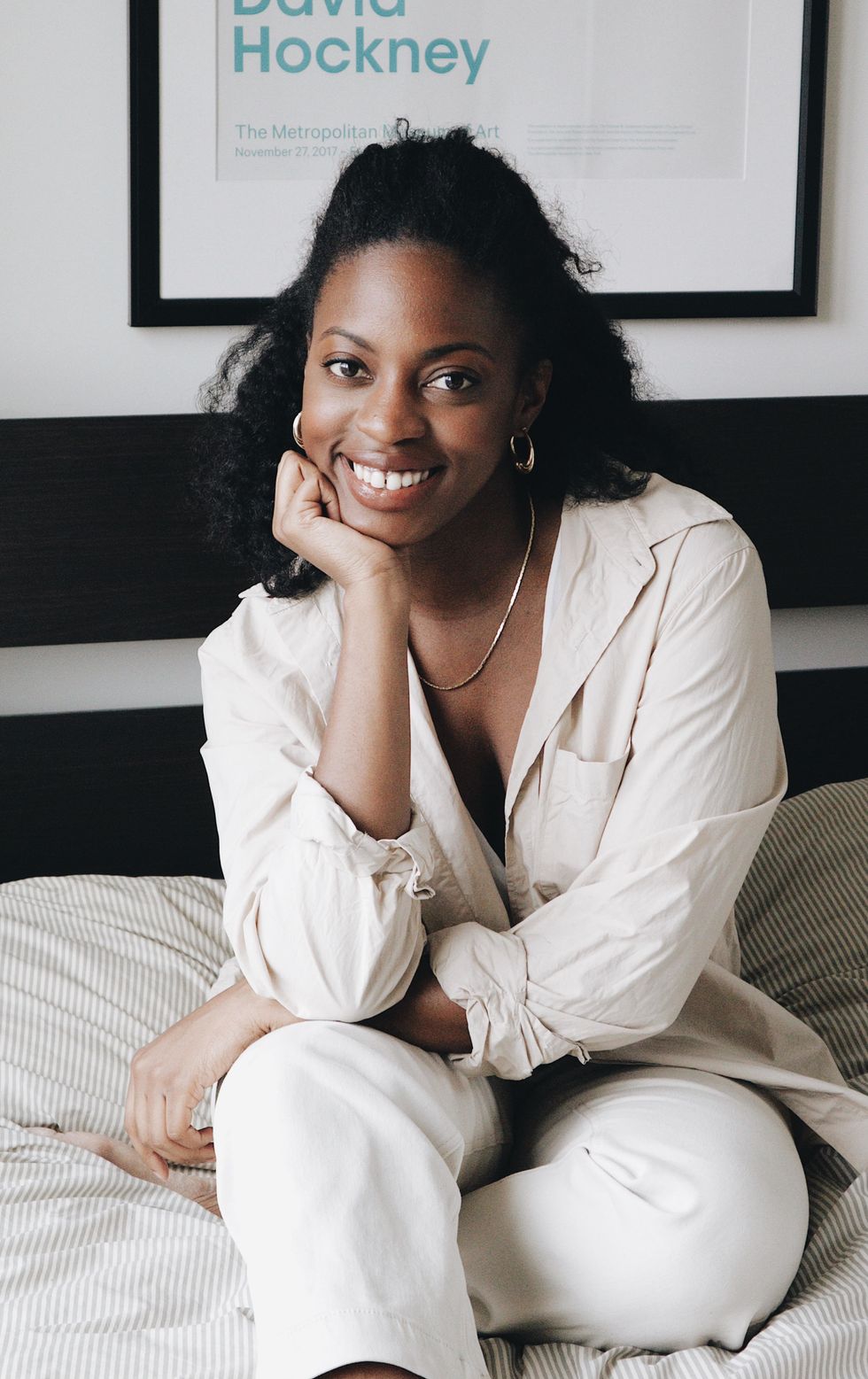
Courtesy of Bre Johnson
How has your line of work been impacted by recent events in Black America?
As of now, I've been devoting my time to my photography passion and my line of work has been impacted positively by the recent events in America. Now more than ever, Black photographers are being sought after for their vision and voice and this is a perfect time for me to be active in the photography world and put my work out into the universe.
How has your mental health been impacted in relation to how recent events have affected your occupation/studies?
At the start of the pandemic my mental health was spiraling. I found myself to be hopeless because I didn't have steady income coming in and my photography plans seemed pointless with social distancing. However, after talking with family/friends and listening to my daily affirmations, I bounced back and my mental health is more balanced than before. I now understand that I have full support from people who want to see me succeed and that pushes me to continue to capture our stories and emotions despite recent events.
How do you manage your mental health?
The best methods for me to manage my mental health is burning Palo Santo and reciting positive affirmations, listening to rags to riches stories on various podcast platforms, journaling my thoughts, a calming bath, burning candles, and just breathing, reminding myself that all is OK.
Tiyanna Washington, LMSW, Founder and CEO of Tspeaksnyc, LLC
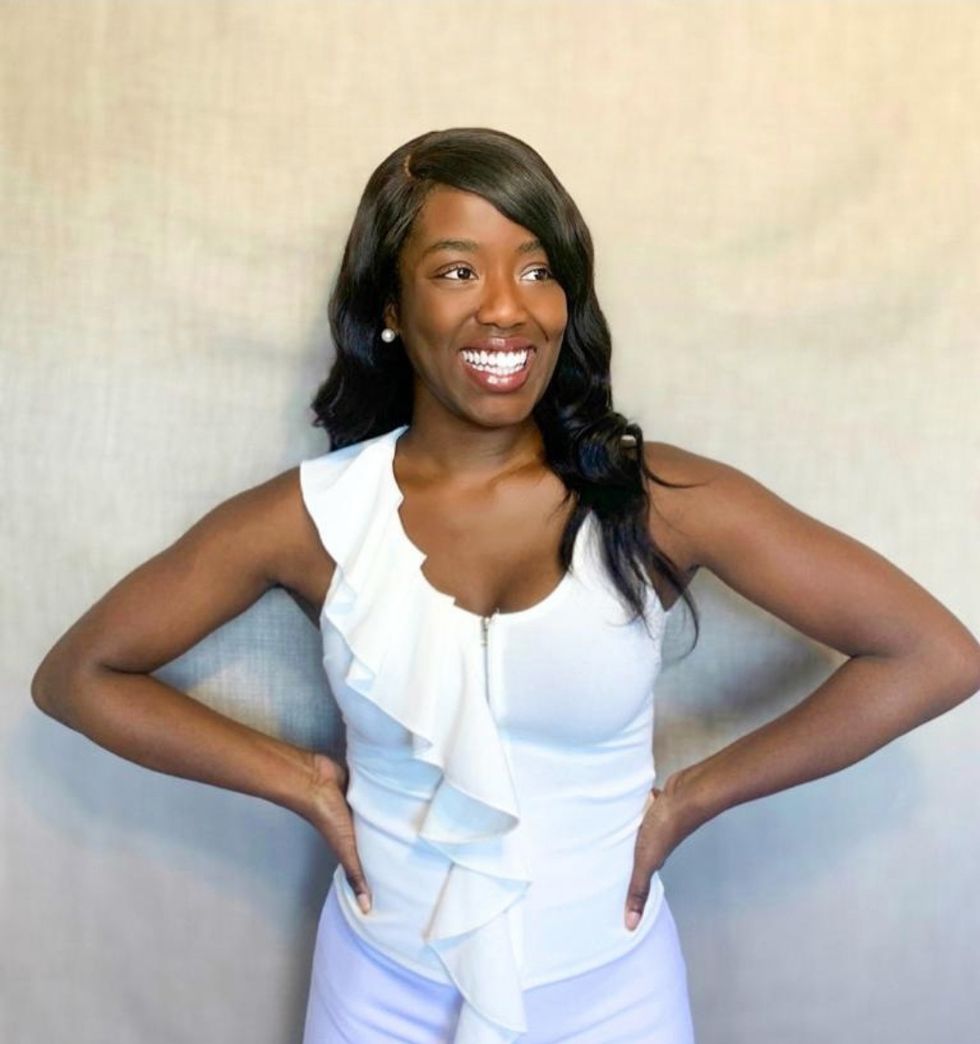
Courtesy of Tiyanna Washington
How has your line of work been impacted by recent events in Black America?
I think now more than ever it's being recognized that there is a need for more therapists of color. I've had a lot more clients reaching out specifically seeking a culturally responsive mental health professional that can understand the racialized traumas that exist in communities of color. I've seen an increase of anxiety-based symptoms with my clients, [including] rapid heartbeat, trouble sleeping at night, persistent feelings of sadness, irritability, [and] headaches that have been directly tied to recent news and media coverage of Black men being killed and the overall state of being Black in America. Folks are actively looking for and seeking ways to process, manage and cope with their thoughts and feelings as it pertains to the profound impacts of racism we are collectively experiencing.
How has your mental health been impacted in relation to how recent events have affected your occupation/studies?
I definitely find myself in a space of appreciating solitude a lot more. With recent events, for many of us, there's this need to want to be informed but sometimes it can feel overwhelming. There have been days when that overwhelming feeling has had a direct impact on my overall mood. [There's] this interesting parallel experience of witnessing what my clients are going through and very much being able to relate because I, too, am experiencing those similar feelings.
"With recent events, for many of us, there's this need to want to be informed but sometimes it can feel overwhelming. There have been days when that overwhelming feeling has had a direct impact on my overall mood. [There's] this interesting parallel experience of witnessing what my clients are going through and very much being able to relate because I, too, am experiencing those similar feelings."
How do you manage your mental health?
As a mental health professional, there's no textbook or manual that teaches you how to hold space for others during a global pandemic and a civil rights movement at the same time. In particular, for therapists of color, we are holding space for others in ways folks could not imagine. For me, finding quiet time during my day helps me to decompress. I'll silence my phone, won't schedule any sessions during that block of time and just allow myself to be. Meditation and music helps to lift my mood tremendously, so I am very intentional about setting aside time during my day to enjoy those very things that bring me peace and comfort.
Niani B., Hair Stylist and Founder of Beaute Anthologie
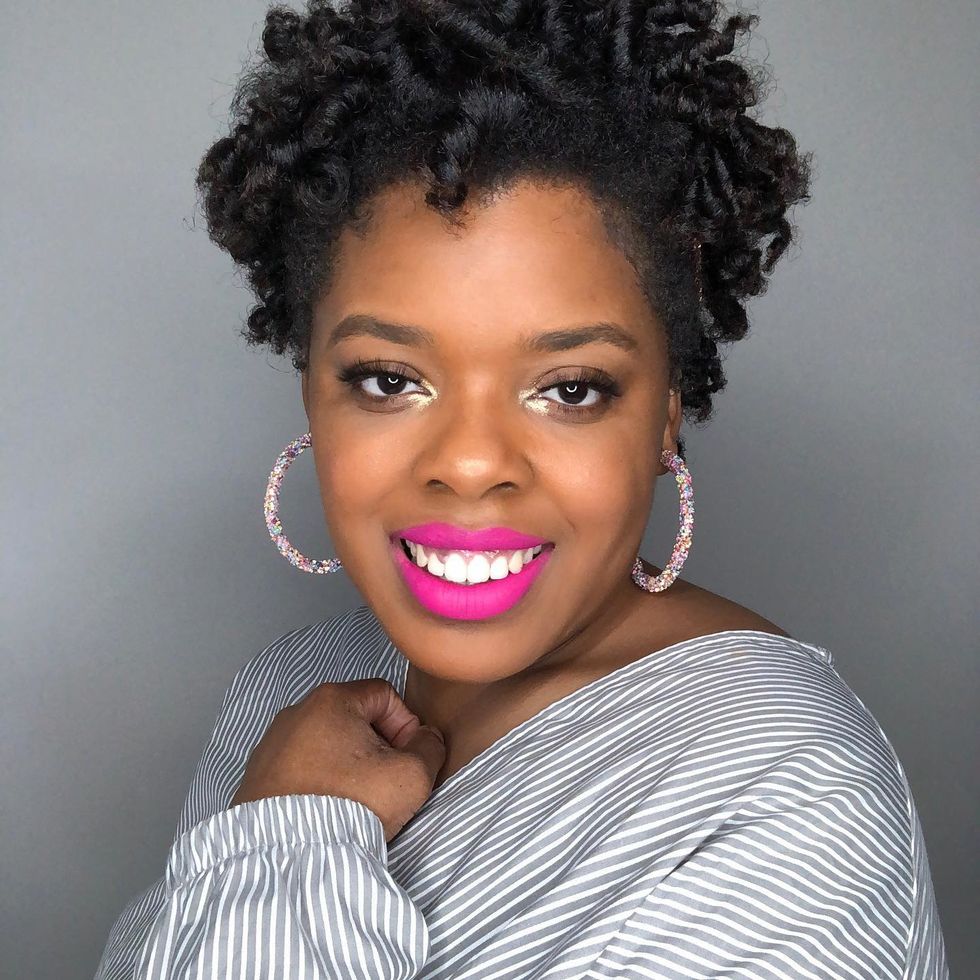
Courtesy of Niani B.
How has your line of work been impacted by recent events in Black America?
Conversations about racism in America have brought attention to how Black hair stylists in the industry are undervalued and overlooked. Black hair stylists have to work twice as hard for opportunities that reflect their skill level, even though there is a demand in the industry.
How has your mental health been impacted in relation to how recent events have affected your occupation/studies?
It can be discouraging knowing that only a handful of Black hair stylists make it to where I want to be in the industry and this can sometimes be depressing, especially when I start to feel like all of my hard work still might not be enough to help me reach my goals - not because I'm not deserving. This can sometimes make me feel helpless.
How do you manage your mental health?
I usually do things that make me feel happy, self-care, which helps to keep me from feeling consumed by the negative impact racism has on my people around the world. Self-care for me does not look like a nail appointment [or] a massage, but instead [like] dance and music. If I'm feeling down, I turn on my favorite reggae [or] Afrobeat playlist and jam it out. I am also looking into finding a Black therapist to help me increase my ability to maintain my mental health, especially in today's climate.
Kaya Nova, Singer-songwriter, Founder of GROW/N, and Creative Consultant
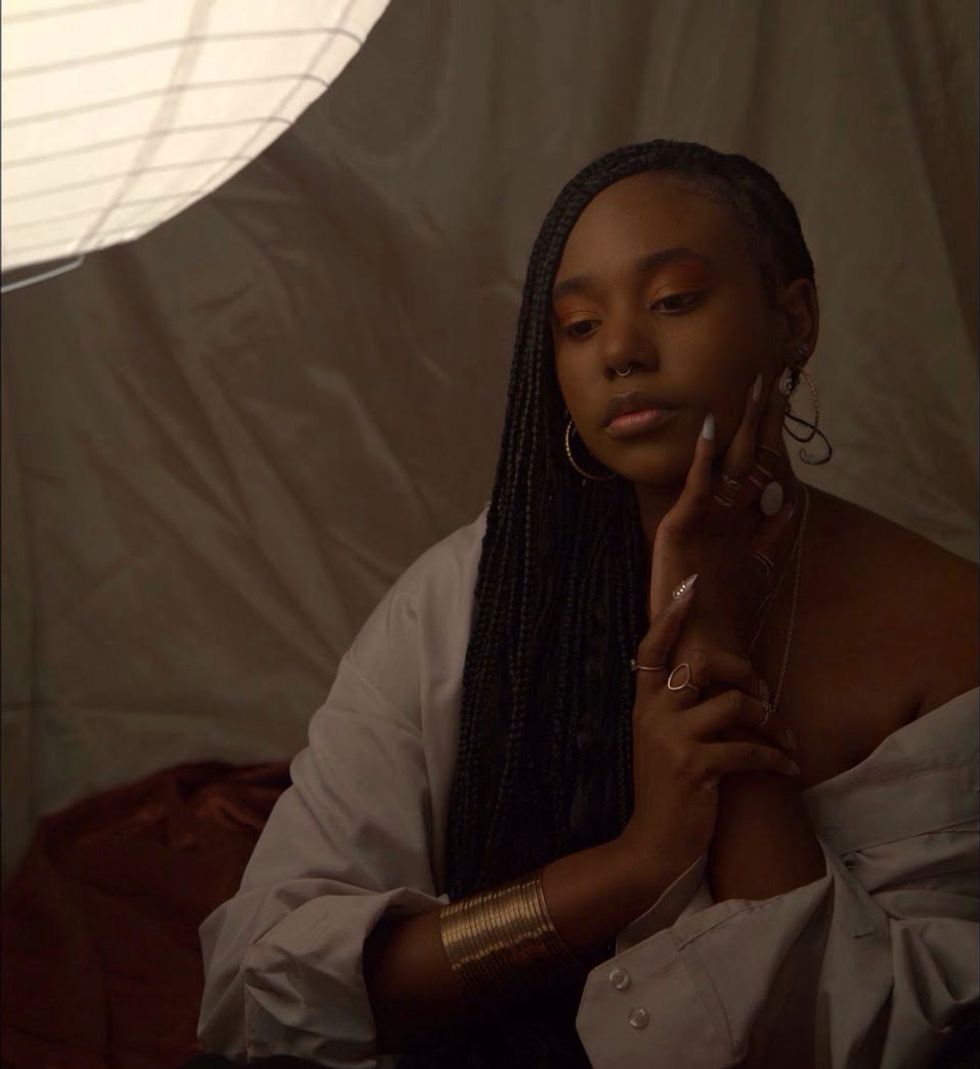
Courtesy of Kaya Nova
How has your line of work as a singer, songwriter and creative been impacted by recent events in Black America?
It made me realize how important it is to continue to create space for other Black creatives to feel empowered by their own voices and share them. It also made me feel more responsible in the work that I do. I've always taken what I do seriously, but even more so I recognize how artists are servers of the community. It is our job to take these painful stories and amplify, process, and somehow create peace around them for our people. It's our job sometimes to communicate what is happening in the world to those who may not understand. It's a heavy job that I don't take lightly. And now I walk in that even more.
How has your mental health been impacted in relation to how recent events have affected your occupation/studies?
I honestly am so used to dealing with so many things as a multidisciplinary in the industry, but I will say this is the first time I've felt true sadness and grief around what's happening. We've been hearing these stories for years now, and I don't think I ever knew how to make emotional space to feel them—so I went numb. But recently, I found grief taking over my body, I stepped away from work, I had to address some of the white clients I work with, there were days I cried, or didn't do anything at all. It took me a while to figure out how I can truly be helpful, but when I did it helped me reclaim some of my peace.
"I've always taken what I do seriously, but even more so I recognize how artists are servers of the community. It is our job to take these painful stories and amplify, process, and somehow create peace around them for our people. It's our job sometimes to communicate what is happening in the world to those who may not understand. It's a heavy job that I don't take lightly. And now I walk in that even more."
How do you manage your mental health?
I haven't shared this publicly yet, but I started anxiety medication about a month ago. One unique thing about anxiety is how it lingers in your body, and triggers other body trauma from your childhood and teen hood. There's things your mind can process that your body hasn't let go of, and I found myself feeling mentally "OK" but struggling with an anxious body—racing heart, body tension, agitation.
And now many of us find ourselves dealing with triggers both in our living situations with social distancing, and in our communities with violent racism, so anxiety is a very big issue. For my own coping, I take medication and also practice a daily routine, exercise, laugh, cry, unplug from social media when I need to, rely on my support system and be as gentle with me as I can while I continue to heal.
Elyse M. Love, MD, Dermatologist at Spring Street Dermatology
How has your line of work been impacted by recent events in Black America?
My work has become more fulfilling in the current climate. My clinic is full of Black faces, and we are all dealing with so much emotional trauma that we have buried. I feel lucky to be able to create a safe place for Black wellness, Black pride, and Black beauty. The ability to help Black people feel beautiful in this current climate feels a little like a superpower, mostly in that it recharges me to continue to read, listen, and speak.
How has your mental health been impacted in relation to how recent events have affected your occupation/studies?
I am exhausted. I am in the early phase of building my career. When NYC Pause happened, I felt like I was running at full speed professionally and then hit a wall. In the coming weeks, as the realization of how COVID disproportionately affects minority communities became obvious, I was overwhelmed with anxiety for my family's safety and sorrow for my community. As I began to recover from that and began to create new ambitions for 2020, Ahmaud Arbery, Amy Cooper, and George Floyd hit the nation in a wave that has not stopped. I am doing my job and I am doing it well, but I am doing no more than that. I see my white colleagues who are building, and I'm honestly too tired to dream right now.
How do you manage your mental health?
It has been important for me to readjust my expectations for myself during this time. I have also given myself permission to rest and take a break. I know that on my off days, someone will step in to fill that spot, and I will do the same when it's someone else's time to rest. If I spend the day on the couch doing nothing, I say to myself "I needed that" instead of "I wasted that time."
J’na Jefferson - Music/Culture Writer and Staff Writer, The Root
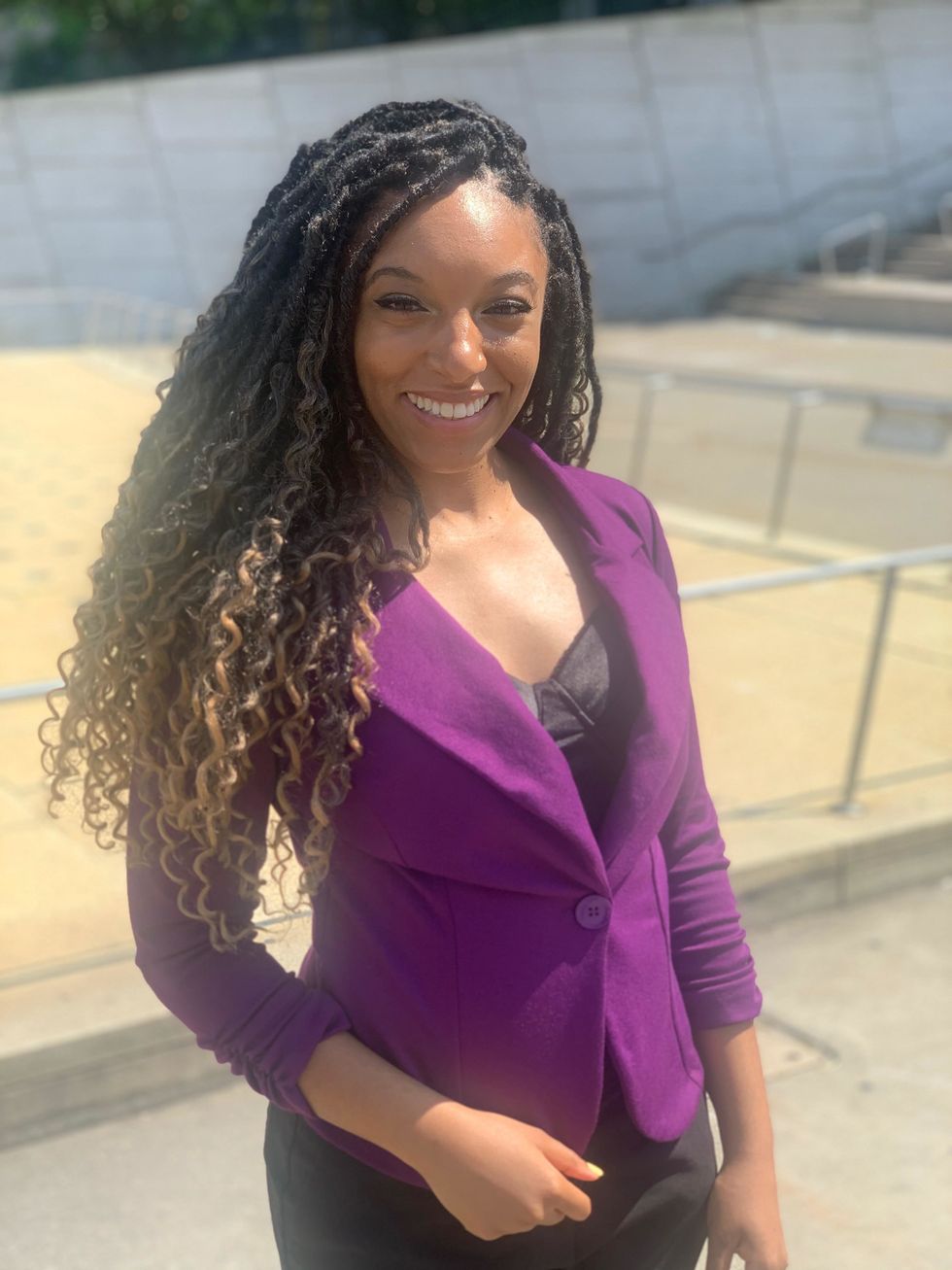
Courtesy of J'na Jefferson
How has your line of work been impacted by recent events in Black America?
Considering The Root is all Black everything, I unfortunately can't get away from some of the more trying events in our community. Even though my beat is primarily entertainment and culture, it's all aligned, and sometimes, I cover hard news as well, which involves some pretty devastating reports. For the most part, not much has changed in my day-to-day operations, but the content itself has gotten a lot more serious. Because of that, our response to reporting and aggregating the content has to be razor sharp, clean, and well-thought, since we're getting more traffic to the site.
How has your mental health been impacted in relation to how recent events have affected your occupation/studies?
I'm a heavy empath, so my feelings regarding certain situations and topics are often manifested in my physical and emotional responses. For example, I was upset about Kobe and Gianna Bryant's death for at least three days, and couldn't sleep because of it. A similar phenomenon has occurred with the stories about Black lives being taken by police, even with all of the Black Lives Matter protests happening throughout the country. I've had trouble sleeping and am triggered by the news a lot, which as a news journalist, is a different kind of agony. Actually, a few weeks ago, I realized I had enough, and took the entire week off of work to unwind and get my mental well-being back in order. I went down to my home state of New Jersey, went swimming, saw a few friends and just relaxed. I rarely opened my computer or social media because I knew the bulk of my stress was from what I was seeing on the news and what I had to report on.
"I've had trouble sleeping and am triggered by the news a lot, which as a news journalist, is a different kind of agony. A few weeks ago, I realized I had enough, and took the entire week off of work to unwind and get my mental well-being back in order. I went down to my home state of New Jersey, went swimming, saw a few friends and just relaxed. I rarely opened my computer or social media because I knew the bulk of my stress was from what I was seeing on the news and what I had to report on."
How do you manage your mental health?
I've been a lot more on top of my mental health and how I respond to recent events in the news. I try to make sure to log off Twitter as soon as I'm finished writing, so I can rid my brain of the stuff that troubles me and the conversations that I don't need to be a part of for my own sanity. That's been extremely helpful to be (somewhat) out of the loop for a few hours of the day. I also do things that make me feel good, like go for walks, watch a little mindless TV, read, and FaceTime my friends. I've also met up with loved ones to do things like run errands or grab a small bite to eat, just to get out of the house and have a conversation with someone.
Featured image courtesy of Kaya Nova
Originally published on July 29, 2020
- We Need To Talk About Black Women & Suicide - xoNecole: Women's Interest, Love, Wellness, Beauty ›
- Depression & Sex: How Mental Health Affects Sex Life - xoNecole: Women's Interest, Love, Wellness, Beauty ›
- Black Mental Health Impact News - xoNecole: Women's Interest, Love, Wellness, Beauty ›
- I’m A Black Woman, A Lawyer & I Have ADHD - xoNecole: Women's Interest, Love, Wellness, Beauty ›
- Top Stress Triggers For Black Women At Work - xoNecole ›
Because We Are Still IT, Girl: It Girl 100 Returns
Last year, when our xoNecole team dropped our inaugural It Girl 100 honoree list, the world felt, ahem, a bit brighter.
It was March 2024, and we still had a Black woman as the Vice President of the United States. DEI rollbacks weren’t being tossed around like confetti. And more than 300,000 Black women were still gainfully employed in the workforce.
Though that was just nineteen months ago, things were different. Perhaps the world then felt more receptive to our light as Black women.
At the time, we launched It Girl 100 to spotlight the huge motion we were making as dope, GenZennial Black women leaving our mark on culture. The girls were on the rise, flourishing, drinking their water, minding their business, leading companies, and learning to do it all softly, in rest. We wanted to celebrate that momentum—because we love that for us.
So, we handpicked one hundred It Girls who embody that palpable It Factor moving through us as young Black women, the kind of motion lighting up the world both IRL and across the internet.
It Girl 100 became xoNecole’s most successful program, with the hashtag organically reaching more than forty million impressions on Instagram in just twenty-four hours. Yes, it caught on like wildfire because we celebrated some of the most brilliant and influential GenZennial women of color setting trends and shaping culture. But more than that, it resonated because the women we celebrated felt seen.
Many were already known in their industries for keeping this generation fly and lit, but rarely received recognition or flowers. It Girl 100 became a safe space to be uplifted, and for us as Black women to bask in what felt like an era of our brilliance, beauty, and boundless influence on full display.
And then, almost overnight, it was as if the rug was pulled from under us as Black women, as the It Girls of the world.
Our much-needed, much-deserved season of ease and soft living quickly metamorphosed into a time of self-preservation and survival. Our motion and economic progression seemed strategically slowed, our light under siege.
The air feels heavier now. The headlines colder. Our Black girl magic is being picked apart and politicized for simply existing.
With that climate shift, as we prepare to launch our second annual It Girl 100 honoree list, our team has had to dig deep on the purpose and intention behind this year’s list. Knowing the spirit of It Girl 100 is about motion, sauce, strides, and progression, how do we celebrate amid uncertainty and collective grief when the juice feels like it is being squeezed out of us?
As we wrestled with that question, we were reminded that this tension isn’t new. Black women have always had to find joy in the midst of struggle, to create light even in the darkest corners. We have carried the weight of scrutiny for generations, expected to be strong, to serve, to smile through the sting. But this moment feels different. It feels deeply personal.
We are living at the intersection of liberation and backlash. We are learning to take off our capes, to say no when we are tired, to embrace softness without apology.
And somehow, the world has found new ways to punish us for it.

In lifestyle, women like Kayla Nicole and Ayesha Curry have been ridiculed for daring to choose themselves. Tracee Ellis Ross was labeled bitter for speaking her truth about love. Meghan Markle, still, cannot breathe without critique.
In politics, Kamala Harris, Letitia James, and Jasmine Crockett are dragged through the mud for standing tall in rooms not built for them.
In sports, Angel Reese, Coco Gauff, and Taylor Townsend have been reminded that even excellence will not shield you from racism or judgment.

In business, visionaries like Diarrha N’Diaye-Mbaye and Melissa Butler are fighting to keep their dreams alive in an economy that too often forgets us first.
Even our icons, Beyoncé, Serena, and SZA, have faced criticism simply for evolving beyond the boxes society tried to keep them in.
From everyday women to cultural phenoms, the pattern is the same. Our light is being tested.

And yet, somehow, through it all, we are still showing up as that girl, and that deserves to be celebrated.
Because while the world debates our worth, we keep raising our value. And that proof is all around us.
This year alone, Naomi Osaka returned from motherhood and mental health challenges to reach the semifinals of the US Open. A’ja Wilson claimed another MVP, reminding us that beauty and dominance can coexist. Brandy and Monica are snatching our edges on tour. Kahlana Barfield Brown sold out her new line in the face of a retailer that had been canceled. And Melissa Butler’s company, The Lip Bar, is projecting a forty percent surge in sales.

We are no longer defining strength by how much pain we can endure. We are defining it by the unbreakable light we continue to radiate.
We are the women walking our daily steps and also continuing to run solid businesses. We are growing in love, taking solo trips, laughing until it hurts, raising babies and ideas, drinking our green juice, and praying our peace back into existence.
We are rediscovering the joy of rest and realizing that softness is not weakness, it is strategy.
And through it all, we continue to lift one another. Emma Grede is creating seats at the table. Valeisha Butterfield has started a fund for jobless Black women. Arian Simone is leading in media with fearless conviction. We are pouring into each other in ways the world rarely sees but always feels.

So yes, we are in the midst of societal warfare. Yes, we are being tested. Yes, we are facing economic strain, political targeting, and public scrutiny. But even war cannot dim a light that is divinely ours.
And we are still shining.
And we are still softening.
And we are still creating.
And we are still It.

That is the quiet magic of Black womanhood, our ability to hold both truth and triumph in the same breath, to say yes, and to life’s contradictions.
It is no coincidence that this year, as SheaMoisture embraces the message “Yes, And,” they stand beside us as partners in celebrating this class of It Girls. Because that phrase, those two simple words, capture the very essence of this moment.
Yes, we are tired. And we are still rising.
Yes, we are questioned. And we are the answer.
Yes, we are bruised. And we are still beautiful.

This year’s It Girl 100 is more than a list. It is a love letter to every Black woman who dares to live out loud in a world that would rather she whisper. This year’s class is living proof of “Yes, And,” women who are finding ways to thrive and to heal, to build and to rest, to lead and to love, all at once.
It is proof that our joy is not naive, our success not accidental. It is the reminder that our light has never needed permission.
So without further ado, we celebrate the It Girl 100 Class of 2025–2026.
We celebrate the millions of us who keep doing it with grace, grit, and glory.
Because despite it all, we still shine.
Because we are still her.
Because we are still IT, girl.
Meet all 100 women shaping culture in the It Girl 100 Class of 2025. View the complete list of honorees here.
Featured image by xoStaff
Someone's Trying To Hook You Up? Ask These 6 Questions First
As we all know, it’s cuffing season. We’re also on the cusp of the holiday season, and that happens to be the time of year when a lot of people get engaged. And that’s why the fall and winter seasons are the times of the year when folks wanna play matchmaker.
And so, sis, if at least one person in your life is currently trying to set you up with someone they know right now — charge it to it being “tis the season” more than anything else. Because let’s be real — folks tend to be more lovey-dovey than ever right about now, and that is usually what inspires them to try to get as many people boo/bae’d up as possible. Chile…CHILE.
It’s not like it has to be a bad thing. In fact, studies say that somewhere around 15 percent of engaged couples actually met through a friend. All I’m saying is, before you entertain someone’s “I’ve got someone I want you to meet” invitation, it would benefit you to interview them first — for the sake of all parties involved.
The questions that I recommend asking? The following six are what I think can get everyone on the same page, so that there is more pleasure than regret from the hook-up attempt.
1. Why Are They So Invested?
 Giphy
GiphyTwo things that I recently watched over again are the series Survivor’s Remorse (the writing is so damn good) and a movie called Trapped in Temptation (both are currently on Tubi). Something that both of them made me think about is the fact that motive reveals a lot when it comes to why people say and do the things that they do.
When it comes to the movie, specifically, without giving the film away — let me just say that, if you are in a relationship, be really careful about listening to individuals who try to talk you out of maintaining it. More times than not, the motive is shady as hell. And honestly, sometimes people who are close to obsessed with you being in one deserve a bit of side-eye too.
Now, if it’s someone who loves all things love, they are in love and they want you to experience something similar — that’s sweet. Just make sure that they are approaching the set up from a healthy space. What I mean by that is they don’t see singleness as some sort of relational handicap or they aren’t trying to override what you want for your life as if they somehow know better (there are so many ways to be a control freak, y’all).
Hmph. Now that I think about it — make sure that the set-up crew isn’t trying to use you to “save” some male friend or relative of theirs. I say that because I once knew a mother whose son had — count ‘em — 10 kids and she was FOREVER trying to get me to date him. Girl, that wasn’t for me. She was looking for a Holy Ghost Jr. for that child of hers. I’ll pass. HARD PASS.
Bottom line with this one — if someone wants to set you up with someone else, the first thing to ask is why? Make sure to really listen to what their answer is. Then pay attention to if your mind, body and spirit are at peace with their answer(s).
2. Do They Know What You Want?
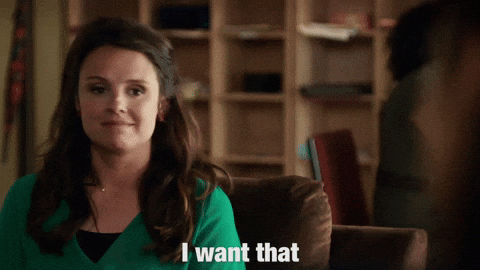 Giphy
GiphyI don’t know about y’all, but the people (and let’s be honest, by far, it’s usually women) who have tried to set me up with someone? They didn’t even know what my preferences or type was. Hell, they didn’t even know my thoughts or timeline as it relates to being in a serious relationship were either. And what that boils down to is they were trying to hook me up based on their agenda, not mine — and that usually meant that the guys who they came up with? Yeah…I was good on them. LOL.
Yeah, if someone wants to hook you up, you definitely should ask them if they know what you are looking for in a guy when it comes to his looks, personality, passions, spirituality, relational desires and goals, location, etc. Because, indeed, what is the point in going out with someone who is fine as hell and yet, you want kids and he doesn’t (or vice versa) or who has a great personality yet he isn’t even in the same ballpark of your spiritual beliefs?
If your friend really wants to help you out, valuing your time should come with that — and that means bringing someone into your life who complements your lifestyle. No wiggle room here.
3. Are They Aware of Your Deal-Breakers?
 Giphy
GiphyLast year, I wrote an article for the platform entitled, “Should Bad Sex Actually Be A Relationship Deal-Breaker?” The thing that I think needs to go on record about deal-breakers is they aren’t exactly standards that you have. No, a deal-breaker is something that can’t be worked out even after trying to negotiate or compromise. When it comes to relationships, a deal-breaker might be how long two people should date before becoming exclusive or getting engaged. Another deal-breaker might be if being religious is more important than being spiritual and how that manifests itself (church or no church, etc.). And yes, another deal-breaker may be what each other’s sexual needs and expectations are.
When someone is setting you up, it is imperative that they know about your standards. For instance, for me, I am not interested in dating a divorced person, pretty much ever (I Corinthians 7:10-11). I’ve had friends who have tried to hook me up with that demographic before and it has always been a moot effort. The fact that some of them have gotten frustrated with my convictions has absolutely nothing to do with me. Some have tried to get me to compromise my deal-breakers too — like a long-distance relationship. Is it a firm “naw”? No. However, it’s not really something that I am interested in, so why not just…recommend someone local?
Yeah, if someone thinks that they know you well enough to hook you up, they absolutely should be well-versed in what your deal-breakers are before they do. And if they’ve never asked, all they are doing is assuming — and we know what that typically means. LOL.
4. What Is Their Track Record?
 Giphy
GiphyIt’s kind of wild that we now live in a time when more couples meet online than they do through “old-fashioned ways” like via their friends (although some reports say that Gen Z is getting back to that) — and yet, here we are. Still, if you are willing to let someone play pseudo matchmaker in your life, you are well within your rights to inquire about their track record in that department. Have they hooked others up, successfully, before? Has any of their “Cupid work” caused both people to get exactly what they wanted out of the situation? If/when things went awry, why was that?
I know someone who is constantly trying to hook people up. Thing is, maybe 10-15 percent (no joke) of their efforts have proven to be positive and fruitful — and we’re talking about close to close to two decades of them doing it. Listen, time is too precious to be out here doing stuff ONLY to please other people. That said, if someone wants you to devote some time to one of their grand ideas, you are well within your rights to ask about their past and current success score when it comes to it.
5. Can They Keep Their Own Feelings Out of It?
 Giphy
GiphyWanna know if someone who is offering to do something for you is actually doing it more for themselves? If they try to make it be about them when things don’t go the way they would like, that is a dead ringer. An example? They post a message about you on social media and then question you about why you didn’t do the same thing in return. Another example? They do something for you and then throw it in your face during an argument. Still another example? They set you up with someone, it doesn’t work out, and suddenly you’ve put them in a weird spot. No dear — you put your own self in that position by trying to hook two people up in the first place.
I promise you, it will spare everyone unnecessary energy spent (or even drama experienced) if, before you agree to be hooked up, you get the matchmaker on record stating that they will keep their emotions out of it as much as possible. MEANING — they will do the introductions and then let the chips fall where they may. If they can’t do this, my two cents (save it or spend it) would be to decline the offer. Because all you need is someone texting you about why you haven’t called their cousin back or having an attitude with you when you break up with some guy at their church who they thought was the perfect catch (P.S. These aren’t hypothetical examples — LOL).
6. Will They Respect Your Boundaries? Start to Finish?
 Giphy
GiphyYeah, this final one is a biggie. Just because someone sets you up with another person, that doesn’t automatically or necessarily mean that they should have the right to the details of the dynamic. I don’t care if it’s the first date or the 10th date. I don’t care if you decide to just be sex buddies or to have a full-blown relationship. I don’t care if you stay together or break-up — it’s your relationship which makes it your business. Whatever you share is privileged data.
Yeah, I would say that probably the most challenging thing about being hooked up by someone you know is they have a tendency to think that they are a part of the relationship too — and that is a lie. If things go well beyond a couple of dates, you and the guy should discuss what you will both share with the person who introduced you and then agree to stick to that boundary, no matter what. It’s a great way to protect the dynamic, to keep “outside voices” from influencing the growth and to navigate how you want to move, moving forward.
Someone who hooked you up for the right reasons and knows how to honor limits? They will understand. Will they ask questions? Absolutely. Will they pry? Nah.
___
Should you sit and let someone hook you up? I mean, you never know how your blessing will come. Just make sure that they are prepared for you to do some digging into their mindset before they start sweetly meddling into your love life.
It’s only fair. Hell, and right. LOL.
Let’s make things inbox official! Sign up for the xoNecole newsletter for love, wellness, career, and exclusive content delivered straight to your inbox.
Featured image by PeopleImages/Shutterstock


